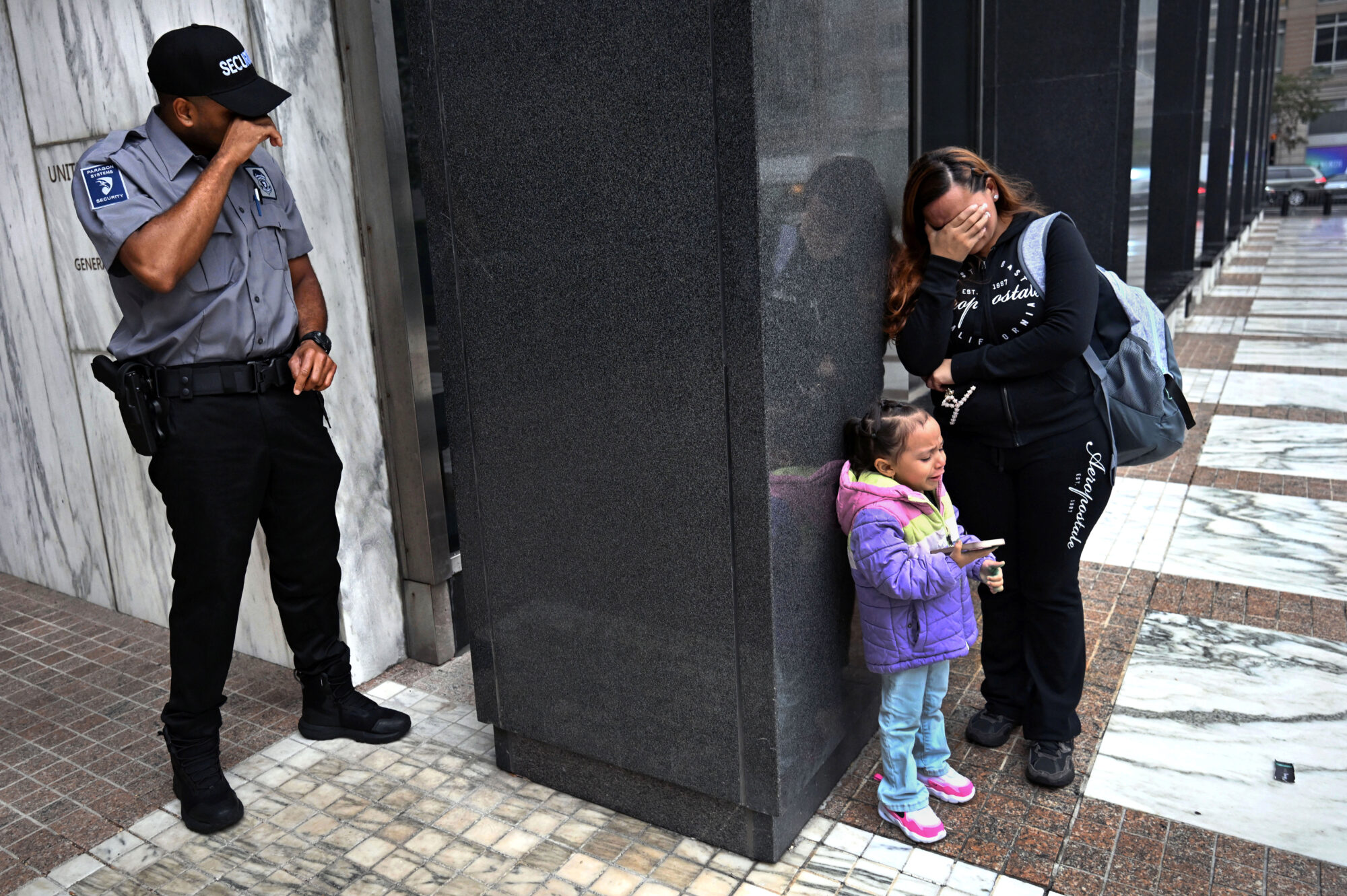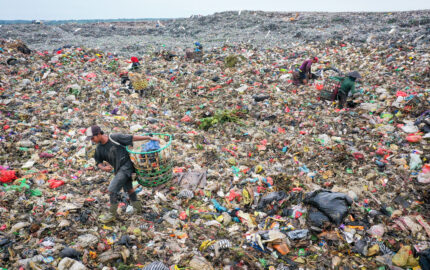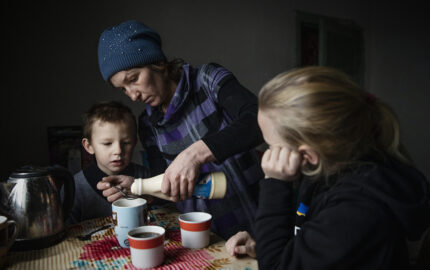Sometimes it’s the quiet, unexpected moments that can reach most deeply into the collective conscience of a nation.
I had just finished documenting a migrant detainment in immigration court in New York, and was gathering basic information as we headed outside — the family inconsolable with despair.
“Please help me, please help me!” the man’s wife cried. “Take me too!” she said, as federal immigration agents dragged her husband away. Outside the building, she continued crying as a security guard came to assist her and her two young children. The guard was overcome — as I was — at the sight of the woman’s visceral anguish. I instinctively took two frames as the guard broke down in tears. I also wept. Court observers later helped the family into a car, heading home to a now uncertain future — one that had changed in an instant.
Security guards are often caught between immigration authorities, migrants, observers, activists, and members of the media as courthouse dynamics play out in what’s becoming the “new normal” in America. This emotional family separation was one of many I have been documenting for months at the Jacob Javits Federal Building in Lower Manhattan, where immigration cases are heard and detainees are held. Federal agents assisting U.S. Immigration and Customs Enforcement (ICE) now regularly wait outside courtrooms with photos of migrants they use to identify those who’ve been targeted to be taken into custody or deported.
Often, as someone leaves their immigration hearing — even if a judge has granted a continuance of their case — officers will surround them. At first they seem perplexed, then they experience a moment of realization and shock. Following that, either reluctant acceptance, or anguish and tears. After everything they’ve been through — including an often arduous journey seeking asylum and the American dream — most walk quietly along on their final steps to a new destiny: the limbo of detention or deportation. Any actual legal charges against them are often not made public by ICE.
As a journalist, it is my job to report fairly and accurately. I believe we need to check our biases at the door, and let our photographs speak. But the most heart-wrenching stories to document are family separations. Children are traumatized watching a parent being taken away by masked men in a place they thought they were coming to for due process.
My own father died when I was 6 years old, so I understand deeply the eternal hole this loss can leave in a child’s heart. The loss has aftershocks as families struggle without a breadwinner.
Whichever side of our deep political divide one sits on, the inescapable reality is that it’s too often spouses and innocent children who are caught in the crossfire of controversial immigration reform tactics.
When strangers on the subway see my cameras, they often ask what I’m covering. When I tell them — many thank me for documenting this important story. More than ever, the media is playing a crucial role in showing the effects of these policies on real people. It can be soul-crushing at times to bear witness, but it is vitally important.



